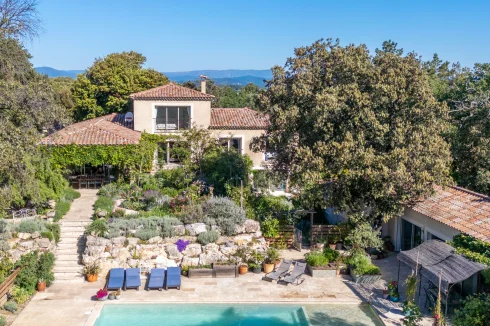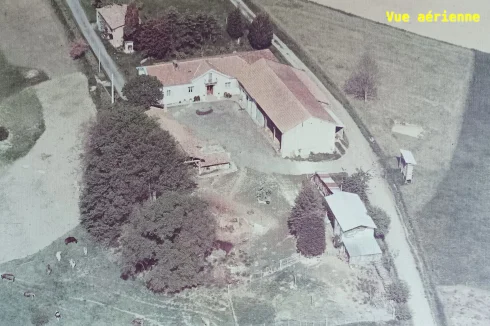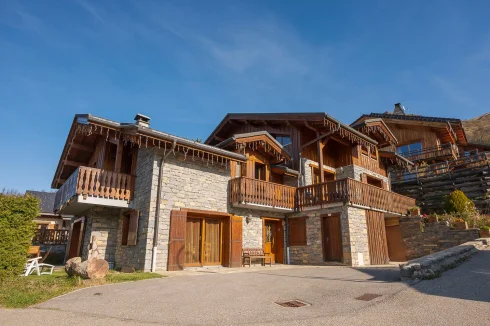High Speed TGV Rail Projects in South West France
Thursday 01 April 2010
Two new high speed rail projects are planned for the South West of France, but not without difficulty.
There is growing opposition against the two new planned high speed TGV routes linking Bordeaux, Toulouse and Spain.

Earlier this month, in an unofficial referendum held in eight communes in the Basque area of the Pyrénées-Atlantiques, over 90% voted against the proposed new line between Bordeaux and Spain, while in Nérac in the Lot et Garonne around 4000 people took part in a protest against a proposed link between Bordeaux and Toulouse.
The government is similarly in difficulty with creation of a new high speed rail link between Tours and Bordeaux (where a mediator has been appointed, although preliminary works have started), and a proposed line between Marseille and Nice has been stalled for over a decade because of protests and disagreement about the route.
While the proposed new routes are separate projects, the protest groups across the country have now joined forces, with an internet petition against the development of the high speed rail system in France.
In 2008 the government announced that it intended to double the existing high speed network to around 4000 kilometres by 2020.
Despite the frequent praise received about the high speed rail system in France, most of it actually runs on conventional rail lines, so is rarely able to achieve the much publicised 320km/h plus speeds of which the TGV trains are capable.
The two new projects in the South West are considered by the French government to be critical for the economic development of the country.
The proposed link between Bordeaux and Spain forms part of a wider trans-European objective to develop a strong rail axis between Paris-Madrid-Lisbon, while the Bordeaux-Toulouse line is part of a plan to link the Atlantic coast and the Mediterranean with a high speed rail system.
However, one of the principal objections of the protesters to these schemes is that, in reality, the new lines do little to reduce travel times between their main destinations.
In part this is because of the introduction of intermediate stops en route, or that for safety or other technical reasons the trains are unable to travel at their maximum speeds.
Bordeaux-Toulouse

The proposal for a TGV line to link Bordeaux and Toulouse has been around since the turn of the century, with initial studies on a route having been completed in 2005.
As part of the plan a new TGV rail station will be constructed near Montauban, and either a new station, or an upgrade of the existing station, at Agen.
One of the stated objectives of new TGV stops at these intermediate stations is to open up these areas for economic development, although critics argue that it does make nonsense of a fast inter-city rail link. The new link will only reduce the travel time between Bordeaux and Toulouse by around 20 minutes.
Nevertheless, the new link will get you from Toulouse to Paris in 3 hours, albeit that it will be via Bordeaux, and that it also requires that the Tours-Bordeaux link is also carried out.
The protestors argue that an upgrade of the existing rail link running North through Limoges would be a lower cost and less disruptive solution.
They consider the new line will be ruinously expensive, at a time when public sector budgets are already stretched to breaking point.
Although estimates vary, the new route is believed to cost around €7 billion, half of which must be found from local budgets. Protestors consider an upgrade of the existing line for use by a TGV would cost €1 billion.
The precise route for the new line has got to be finalised. A public enquiry will be held next year.
The main villages in the Lot-et-Garonne that will be affected by the new line are Saint-Martin-de-Curton, Pindères, Pompogne, Fargues s/Ourbise, Ambrus, Xaintrailles, Vianne, Feugarolles, Bruch, Montesquieu, Sérignac, Sainte-Colombe-en-Bruilhois, Roquefort, Estillac, Sauveterre-Saint-Denis, Saint-Nicolas de la Balerme, and Caudecoste.
Bordeaux-Spain
The link between Bordeaux and Spain faces similar objections on grounds of cost, the destruction of the environment, and the lack of efficiency of the new line.
As part of the plan a new station will be built at Mont de Marsan where there will be a stop, with other stops at Dax and Bayonne. However, only the section of the line between Bordeaux and Dax will actually be high speed (320km/h).
Thousands of hectares of forest and agricultural land will be destroyed as a result of the scheme, a loss that comes on top of the huge losses incurred through storms over the past decade, and those losses resulting from construction of the Bordeaux-Pau autoroute.
As with the Bordeaux-Toulouse link, protest groups argue a better solution would be to upgrade the existing network.
The government argues that one effect of the new link would be to shift freight from road to rail. At the present time the main autoroute around Bordeaux and down into Spain carries a huge amount of freight traffic, and if this could be taken off the road the environmental gains would be signficant. This is one of the main objectives of the new line.
However, critics argue that there is no evidence to date that high-speed trains are taking freight off the road.
One key figure who has raised concerns about the new line is the Minister of Justice, Michèle Alliot-Marie, who comes from the Basque country, and whose electoral base is located there.
You can view a plan of the proposed new routes at Grands Projets du Sud Ouest.
Thank you for showing an interest in our News section.
Our News section is no longer being published although our catalogue of articles remains in place.
If you found our News useful, please have a look at France Insider, our subscription based News service with in-depth analysis, or our authoritative Guides to France.
If you require advice and assistance with the purchase of French property and moving to France, then take a look at the France Insider Property Clinic.





